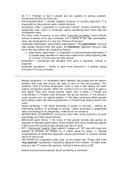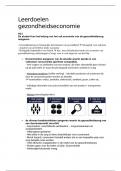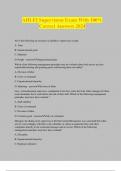Exam (elaborations)
AFL2603 Assignment 10 Full Solutions Semester 2 2024
- Institution
- University Of South Africa
AFL2603 Assignment 10 (COMPLETE QUESTIONS & ANSWERS) Semester 2 2024 ;100 % TRUSTED workings, Expert Solved, Explanations and Solutions. For assistance call or W.h.a.t.s.a.p.p us on ...(.+.2.5.4.7.7.9.5.4.0.1.3.2)........... Question 1 1.1 How did people in the olden days’ prior formal education...
[Show more]












